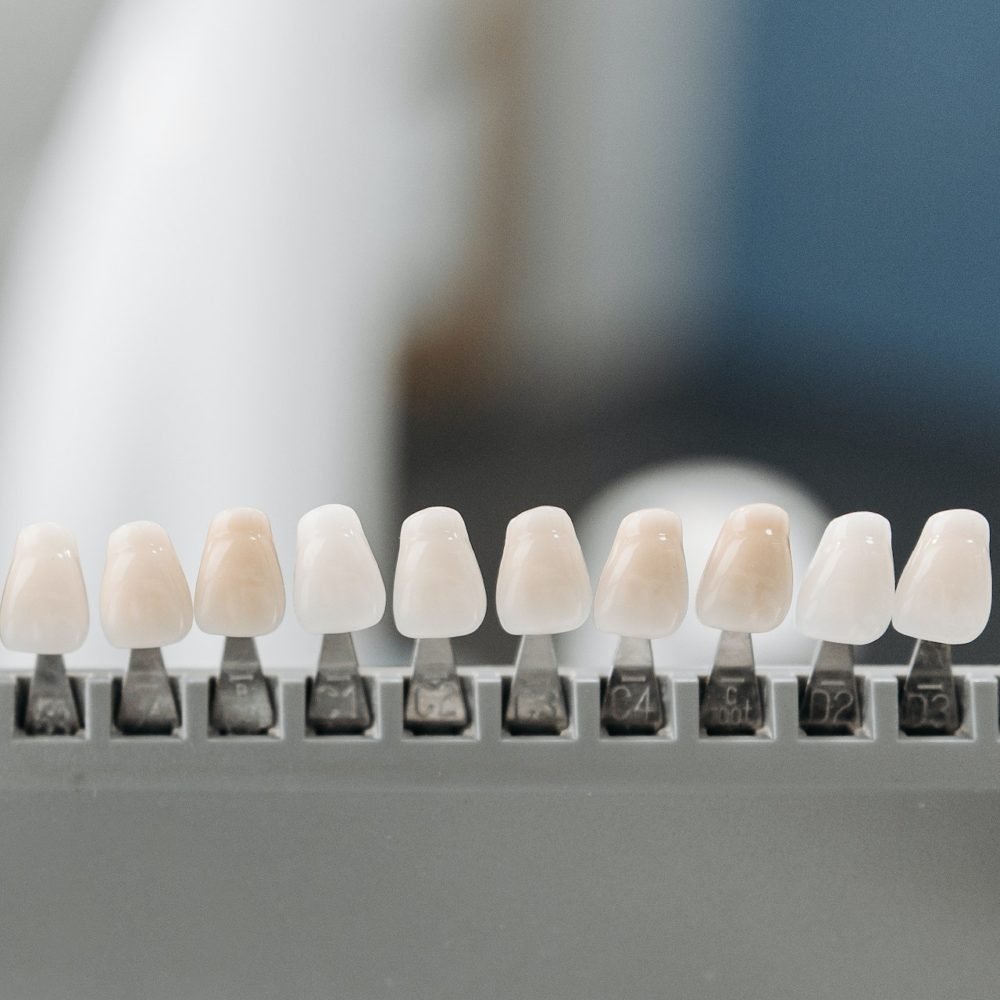FAQ
Most frequent questions and answers
Dental veneers are thin, custom-made shells that are bonded to the front of the teeth to improve their appearance.
Dental veneers can last for many years with proper care and maintenance. The lifespan of veneers depends on the materials used and the individual’s oral hygiene habits.
The process of getting dental veneers typically involves minimal pain or discomfort. Local anesthesia may be used during the procedure to minimize any discomfort.
Dental veneers are not considered a reversible procedure, as some enamel must be removed to prepare the teeth for veneers. However, veneers can be replaced if necessary.
Dental veneers do not require any special care beyond regular brushing and flossing. Patients should avoid biting into hard objects, such as ice or hard candy, to prevent damage to the veneers. Regular dental checkups are also important to maintain the health of the teeth and gums.
Dental veneers can be used to improve the appearance of slightly crooked teeth, but they are not a substitute for orthodontic treatment in cases of severe misalignment.
The suitability of dental veneers depends on the individual’s oral health needs and goals. A consultation with a dental professional can help determine if dental veneers are a good option.


